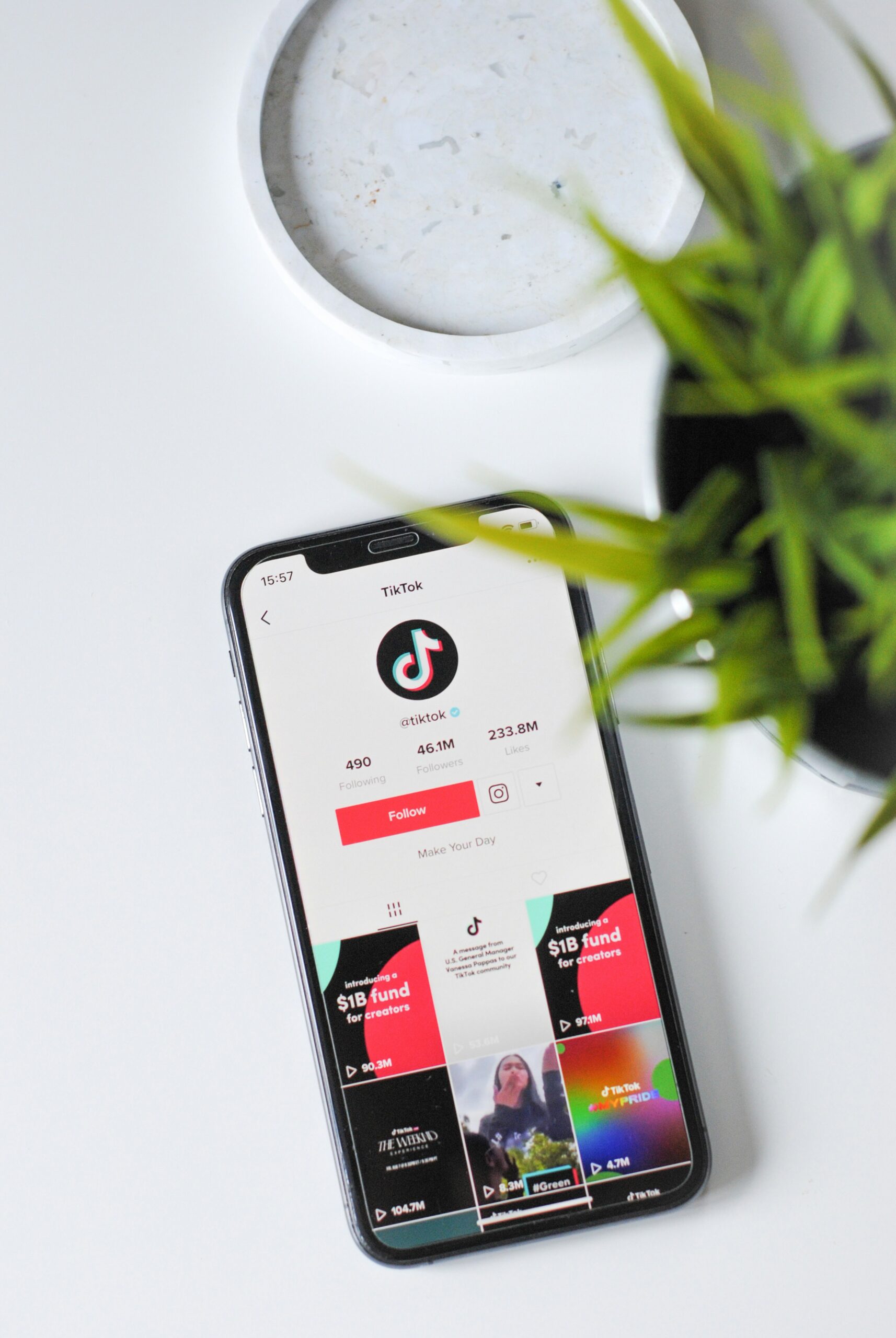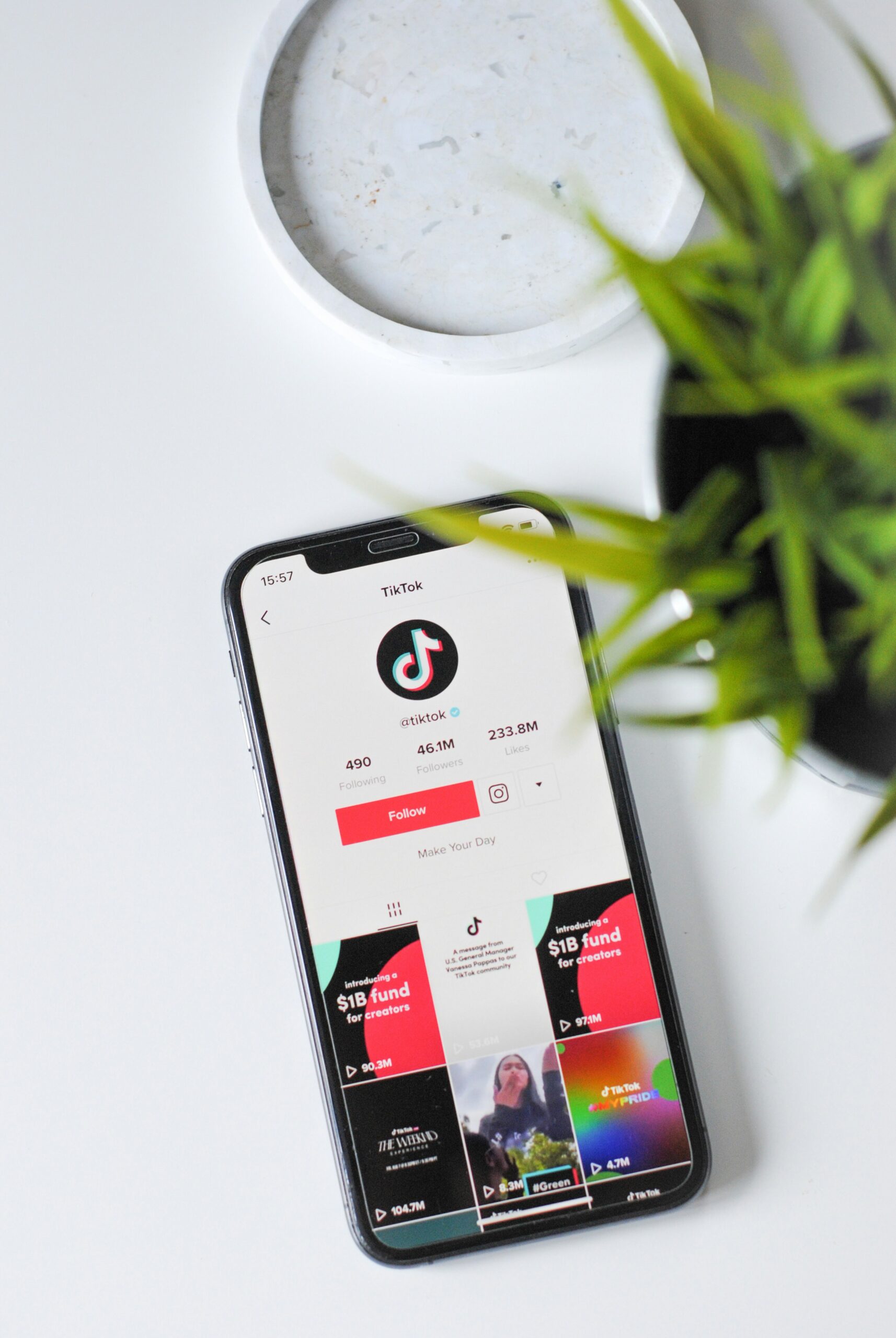
Facebook Marketing Trends to Watch Out for in 2023
Introduction to Facebook Marketing in 2023
As we step into 2023, Facebook continues to hold a dominant position as a key marketing platform for businesses of all sizes. With a massive user base that exceeds 2.9 billion monthly active users, the platform’s reach is unparalleled. Over the years, Facebook has evolved from a social networking site to a comprehensive marketing tool, offering businesses the ability to engage with their audience through a variety of formats such as posts, stories, ads, and live videos. This evolution has solidified Facebook’s status as an indispensable component of any robust digital marketing strategy.
The importance of staying updated with the latest Facebook marketing trends cannot be overstated. The platform constantly undergoes algorithm updates, introduces new features, and shifts in user behavior, all of which can significantly impact the effectiveness of marketing efforts. In 2023, understanding these changes and adapting accordingly is crucial for businesses aiming to maximize their return on investment.
Moreover, Facebook’s advanced targeting options enable marketers to reach highly specific audience segments. This precision targeting, combined with the platform’s extensive analytics capabilities, allows businesses to tailor their campaigns for optimal performance. As a result, marketers can not only engage with their current audience more effectively but also expand their reach to new potential customers.
In this rapidly changing digital landscape, leveraging Facebook’s marketing potential requires a proactive approach. By keeping a close eye on emerging trends and integrating them into their marketing strategies, businesses can stay ahead of the curve. The following sections of this blog post will delve into the specific Facebook marketing trends that are shaping 2023, providing insights and actionable tips for harnessing these trends to drive business success.
Trend 1: The Rise of Video Content
As we move further into 2023, video content continues to dominate as a pivotal element in Facebook marketing strategies. With the platform’s algorithm increasingly favoring video posts, businesses are tapping into various forms of video to capture audience attention and drive engagement. Live videos, short-form videos, and stories are particularly gaining traction, each offering unique advantages to marketers.
Live videos, for instance, have become a cornerstone for real-time interaction and engagement. They enable brands to connect with their audience in a more personal and immediate manner. Whether it’s product launches, Q&A sessions, or behind-the-scenes glimpses, live videos foster a sense of community and authenticity that static posts can’t match. Moreover, Facebook’s algorithm tends to prioritize live content, ensuring it reaches more users.
Short-form videos, often under a minute, are also seeing a surge in popularity. These bite-sized clips are perfect for delivering quick, impactful messages that resonate with viewers who have limited attention spans. Platforms like Facebook Reels and Stories capitalize on this trend, making it easier for brands to create and share compelling content that can go viral. The ephemeral nature of stories, which disappear after 24 hours, adds an urgency that encourages immediate viewer engagement.
To maximize the benefits of video content, it’s crucial for marketers to focus on quality and relevance. Videos should be visually appealing, concise, and aligned with the brand’s message. Incorporating captions can also enhance accessibility and ensure that the content is engaging even without sound. Additionally, leveraging analytics to track performance metrics such as views, shares, and comments can provide valuable insights for refining video marketing strategies.
In essence, the rise of video content on Facebook offers a powerful tool for brands to boost engagement and reach. By embracing live videos, short-form clips, and stories, businesses can create dynamic and interactive experiences that resonate with their audience, ultimately driving higher levels of interaction and loyalty.
Trend 2: Enhanced Personalization and Targeting
In 2023, Facebook continues to revolutionize its personalization and targeting capabilities, enabling businesses to create highly relevant and personalized ad experiences for their audiences. Enhanced personalization and targeting are pivotal for any successful marketing strategy, and leveraging these tools can significantly improve campaign performance and ROI.
One of the primary advancements is the refinement of Facebook’s custom audiences feature. This tool allows businesses to target ads based on specific criteria, such as user behavior, engagement history, and customer data. By creating custom audiences, marketers can tailor their messages to meet the specific needs and interests of different user segments, ensuring that each ad is as relevant and impactful as possible.
Another powerful tool in Facebook’s targeting arsenal is lookalike audiences. Lookalike audiences enable businesses to reach new people who are likely to be interested in their products or services because they share characteristics with existing customers. By analyzing data from custom audiences, Facebook’s algorithm identifies common traits and behaviors, creating a new audience segment with similar interests. This method broadens the reach while maintaining a high level of relevance, often resulting in better engagement and conversion rates.
Furthermore, Facebook’s machine learning and AI capabilities continue to evolve, providing advertisers with more sophisticated targeting options. These advancements allow for dynamic ads that automatically personalize content based on user preferences and past interactions. By utilizing these innovative tools, businesses can deliver a more tailored ad experience, which can lead to increased user satisfaction and higher conversion rates.
Overall, the enhanced personalization and targeting features on Facebook offer businesses a significant advantage in reaching and engaging their desired audience. By utilizing custom audiences, lookalike audiences, and advanced machine learning techniques, marketers can create highly relevant and effective ad campaigns that resonate with users, driving better results and maximizing marketing efforts.
Trend 3: Growing Importance of Facebook Groups
As the digital landscape evolves, the growing importance of Facebook Groups has become undeniable for businesses. These groups are transforming from simple social forums into vital hubs of community and engagement. They offer brands an unparalleled opportunity to build dedicated communities, foster deeper interactions, and create a sense of belonging among their audience. For businesses, leveraging Facebook Groups can lead to enhanced customer loyalty, increased brand advocacy, and valuable customer insights.
Brands can use Facebook Groups to cultivate a community where members feel connected and valued. By creating a space for discussions, sharing exclusive content, and addressing customer questions, brands can position themselves as thought leaders within their industry. For instance, Peloton’s Facebook Group serves as a vibrant community where members share workout tips, motivational stories, and support each other’s fitness journeys. This engagement not only strengthens their connection to the brand but also enhances customer retention.
Successful management of Facebook Groups requires a strategic approach. Begin by clearly defining the group’s purpose and ensuring it aligns with your brand values. Encourage active participation by regularly posting engaging content, such as polls, questions, and live videos. Moderation is key; establish group rules to maintain a positive environment and promptly address any negative behavior. Additionally, recognize and celebrate active members by giving them shout-outs or exclusive perks, thus fostering a sense of appreciation and loyalty.
To grow an active community, it’s essential to invite your existing audience to join the group and promote it across other marketing channels. Collaborate with influencers or industry experts to host Q&A sessions or workshops within the group, further boosting engagement. Analyzing group insights can provide valuable data on member activity and preferences, enabling you to tailor content and strategies effectively.
Incorporating Facebook Groups into your marketing strategy can significantly enhance your brand’s community-building efforts. By fostering meaningful interactions and providing a platform for shared experiences, businesses can strengthen their connection with their audience and drive sustained engagement.
Trend 4: Integration of Augmented Reality (AR) and Virtual Reality (VR)
In 2023, the integration of Augmented Reality (AR) and Virtual Reality (VR) into Facebook marketing strategies is set to revolutionize how brands engage with their audiences. As these immersive technologies become more accessible, businesses are leveraging AR and VR to create interactive and highly engaging content that resonates with consumers on a deeper level.
AR and VR offer unique opportunities for brands to provide enhanced user experiences. Augmented Reality, for instance, allows users to superimpose digital elements onto the physical world through their mobile devices. This can be seen in Facebook’s AR filters and effects, which have become a popular tool for marketers looking to capture user attention in creative ways. Brands like IKEA have successfully utilized AR to enable customers to visualize products in their own homes before making a purchase, significantly enhancing the shopping experience.
Virtual Reality, on the other hand, provides a fully immersive experience that can transport users to entirely new environments. Facebook’s investment in VR technologies, such as their Oculus platform, has opened up avenues for marketers to create compelling virtual experiences. For example, automotive brands are using VR to offer virtual test drives, allowing potential customers to experience the thrill of driving a new car without leaving their homes. This not only creates a memorable experience but also fosters a stronger emotional connection to the brand.
The combination of AR and VR in Facebook marketing is not just about novelty; it’s about creating meaningful interactions that drive engagement and conversion. As these technologies continue to evolve, we can expect to see even more innovative applications that blend the virtual and physical worlds seamlessly. Brands that embrace AR and VR will be well-positioned to stand out in the crowded digital landscape, offering experiences that go beyond traditional advertising methods.
Trend 5: Increased Focus on Privacy and Data Security
As data breaches and privacy concerns continue to make headlines, the emphasis on privacy and data security within Facebook marketing is becoming more pronounced. In 2023, Facebook has implemented a series of changes to its privacy policies to better protect user data and ensure compliance with global data protection regulations such as the General Data Protection Regulation (GDPR) and the California Consumer Privacy Act (CCPA). These changes are designed to enhance transparency, giving users greater control over their personal information.
For marketers, these shifts necessitate a more vigilant approach to data handling and a thorough understanding of Facebook’s updated privacy policies. To maintain consumer trust, it is essential for marketers to adhere to best practices in data security. This includes obtaining explicit consent before collecting user data, being transparent about data usage, and providing easy-to-access privacy settings for users. Additionally, implementing robust security measures such as encryption and regular audits can help safeguard sensitive information.
Another critical aspect of aligning with Facebook’s focus on privacy is the use of data minimization strategies. Marketers should collect only the data they need for specific campaigns, reducing the risk of unnecessary exposure. Employing anonymization techniques where possible can further protect user identities while still allowing for effective marketing analysis and targeting.
Moreover, being proactive in educating consumers about their privacy rights and the steps taken to protect their data can significantly enhance brand loyalty. Creating clear, concise privacy policies and communicating these policies through various channels can reassure users about the safety of their information.
In conclusion, the increased focus on privacy and data security in Facebook marketing requires marketers to be more diligent and transparent in their data handling practices. By staying compliant with evolving regulations and adopting best practices for data protection, marketers can build trust with consumers and navigate the complexities of Facebook’s privacy landscape effectively.
Trend 6: The Role of Influencer Marketing on Facebook
In 2023, influencer marketing continues to play an essential role on Facebook, offering brands a unique avenue to connect with their target audience. Collaborating with influencers can significantly boost brand visibility, engagement, and credibility. One of the primary benefits of influencer marketing is its ability to reach niche audiences that are often hard to target through traditional advertising methods. By leveraging the trust and authenticity that influencers have cultivated with their followers, brands can deliver their message more effectively.
Choosing the right influencers is crucial for the success of these campaigns. Brands should look for influencers whose values align with their own and who have a genuine connection with their audience. This alignment ensures that the influencer’s promotion of the brand appears authentic and resonates well with their followers. Factors such as engagement rates, audience demographics, and the influencer’s previous collaborations should be thoroughly analyzed before making a selection.
Measuring the success of influencer campaigns involves tracking various metrics. Engagement rates, such as likes, comments, and shares, provide insight into how well the content is resonating with the audience. Additionally, tracking website traffic, conversion rates, and sales generated from influencer posts can offer a comprehensive view of the campaign’s effectiveness. Utilizing tools like Facebook Insights and third-party analytics platforms can help brands gather and interpret this data.
Several trends are shaping the landscape of influencer marketing on Facebook in 2023. One notable trend is the rise of micro-influencers. These influencers, typically with followers ranging from 1,000 to 100,000, often have higher engagement rates compared to their more prominent counterparts. Their smaller, more dedicated follower base allows for more personalized interactions, which can lead to higher trust and influence. Another trend is the emphasis on authentic content. Audiences are increasingly drawn to genuine, relatable content over highly polished, staged posts. Influencers who share behind-the-scenes glimpses, personal stories, and unfiltered moments are likely to see greater engagement.
Trend 7: The Expansion of Facebook Shops and Social Commerce
One of the most significant trends in 2023 is the continued expansion of Facebook Shops and the rise of social commerce. As businesses increasingly turn to digital platforms to reach consumers, Facebook Shops provide an integrated solution that combines the vast reach of social media with the convenience of e-commerce. This development enables businesses of all sizes to set up and optimize their online stores directly within Facebook, offering a seamless shopping experience for users.
Setting up a Facebook Shop is straightforward. Businesses can create a digital storefront by uploading product catalogs, which can be organized into collections. This allows customers to browse, share, and purchase products without leaving the Facebook app. To optimize their Facebook Shops, businesses should focus on high-quality images, detailed product descriptions, and regular updates to keep the inventory fresh and engaging. Additionally, leveraging Facebook’s advertising tools to promote products and drive traffic to the shop can significantly boost visibility and sales.
The integration of e-commerce with social media through Facebook Shops offers numerous benefits. Primarily, it reduces friction in the customer journey by allowing users to discover and purchase products within a familiar environment. This seamless experience can lead to higher conversion rates and increased sales. Furthermore, social commerce enables businesses to tap into Facebook’s vast user data to create personalized shopping experiences, enhancing customer engagement and loyalty.
Social commerce also plays a crucial role in driving sales through interactive and community-driven features. For instance, users can share their purchases, leave reviews, and participate in live shopping events hosted by businesses. These social interactions can amplify word-of-mouth marketing and foster a sense of community around a brand, further boosting customer trust and loyalty.
In conclusion, the expansion of Facebook Shops and the rise of social commerce are reshaping the landscape of online retail. By setting up and optimizing Facebook Shops, businesses can leverage the power of social media to drive sales and engage with customers more effectively than ever before.
Trend 8: The Evolution of Facebook Advertising Formats
As we progress through 2023, Facebook continues to innovate its advertising formats, offering marketers a plethora of new tools to engage their audiences. One of the most notable developments in Facebook advertising is the introduction of interactive ads. These ads enable users to actively engage with the content rather than passively viewing it. Interactive ads can include polls, quizzes, and augmented reality experiences, providing a more immersive and personalized user experience. By leveraging these features, brands can foster a higher level of engagement and create memorable interactions with their target audience.
Playable ads are another exciting addition to Facebook’s advertising arsenal. Particularly effective for app developers and gaming companies, playable ads allow users to experience a snippet of an app or game directly within the ad itself. This hands-on approach not only captivates users but also provides a tangible demonstration of the product, increasing the likelihood of app downloads and user retention. By offering a trial run, playable ads can significantly enhance user acquisition strategies and improve overall campaign performance.
Additionally, Facebook Stories ads are gaining traction as a powerful format for marketers. These full-screen, vertical ads appear between stories shared by users and are designed to be short, engaging, and visually appealing. With the increasing popularity of ephemeral content, Facebook Stories ads present an excellent opportunity for brands to connect with audiences in a more casual and authentic manner. Utilizing features like stickers, GIFs, and interactive elements, marketers can create dynamic and appealing ads that resonate with users.
To maximize the effectiveness of these evolving ad formats, it is crucial for marketers to stay updated on the latest features and best practices. Experimenting with different formats and analyzing performance metrics will help determine the most suitable approach for achieving specific campaign objectives. By embracing and adapting to these new advertising formats, brands can enhance their visibility, engagement, and ultimately, their return on investment in Facebook marketing.
Conclusion: Staying Ahead of the Curve
In 2023, the landscape of Facebook marketing is evolving rapidly, driven by advancements in technology and shifts in user behavior. The trends discussed throughout this blog post highlight the importance of staying updated with the latest developments to maintain a competitive edge. From leveraging AI and machine learning for personalized advertising to capitalizing on the growing influence of video content, businesses must remain agile and adaptable.
One of the key takeaways is the significance of data privacy and transparency. As users become increasingly concerned with how their personal information is utilized, brands need to prioritize ethical marketing practices. This not only fosters trust but also ensures compliance with regulatory standards, thereby safeguarding the brand’s reputation.
Moreover, the integration of social commerce on Facebook is revolutionizing the way consumers shop online. By streamlining the purchasing process within the platform, businesses can enhance user experience and drive higher conversion rates. Additionally, the rise of augmented reality (AR) and virtual reality (VR) in Facebook marketing offers innovative ways to engage with audiences, providing immersive experiences that can significantly boost brand loyalty.
To effectively navigate these trends, businesses should invest in continuous learning and development. Staying informed about the latest tools, features, and best practices on Facebook is crucial. This may involve participating in webinars, enrolling in digital marketing courses, or collaborating with industry experts. Additionally, regularly analyzing performance metrics and user feedback can help refine marketing strategies, ensuring they are aligned with current trends and audience expectations.
In conclusion, the dynamic nature of Facebook marketing in 2023 presents both challenges and opportunities. By staying proactive and embracing these emerging trends, businesses can not only stay ahead of the competition but also maximize their potential for growth and success on the platform.


